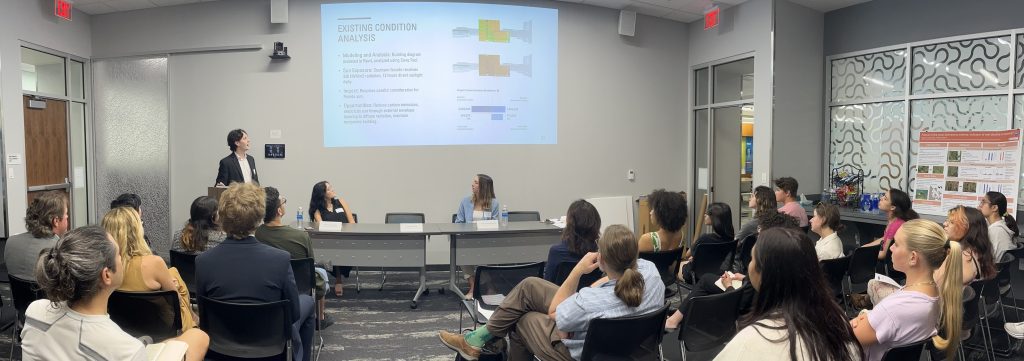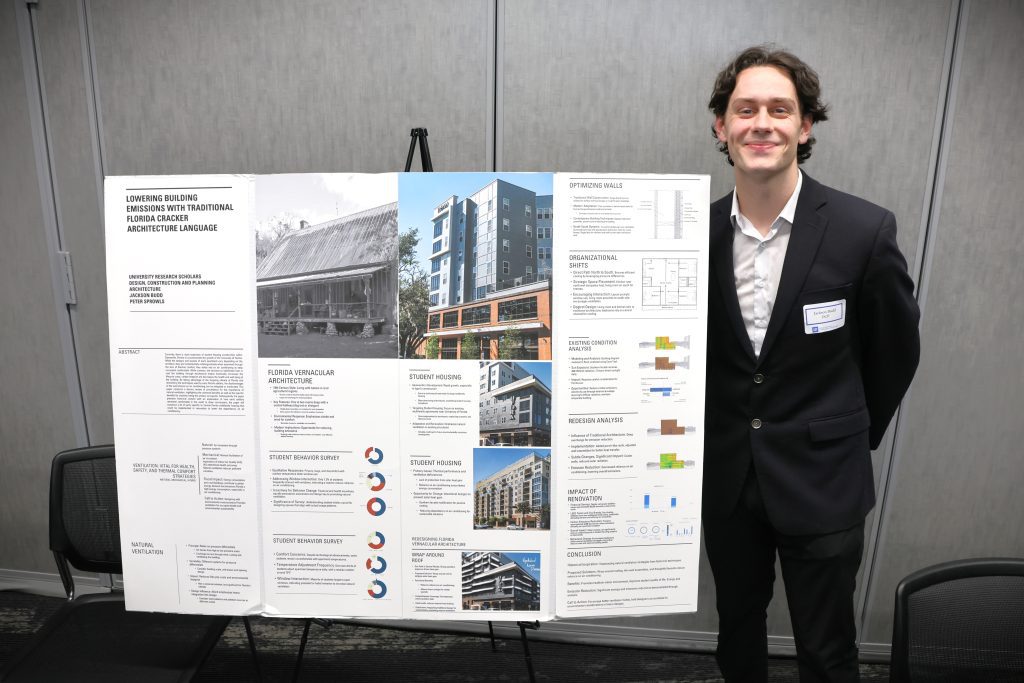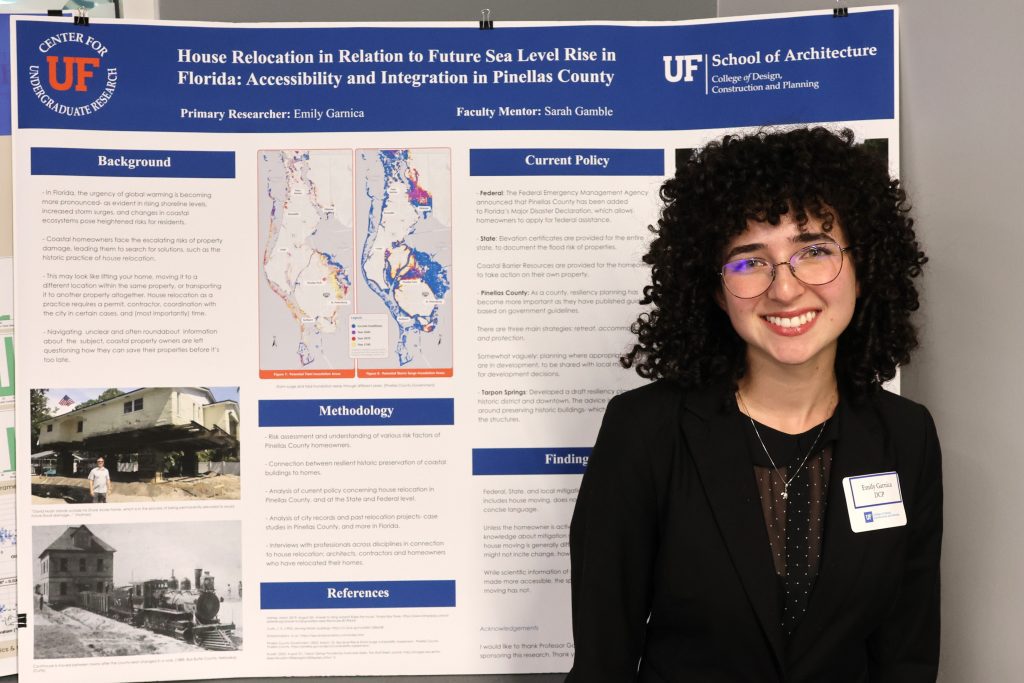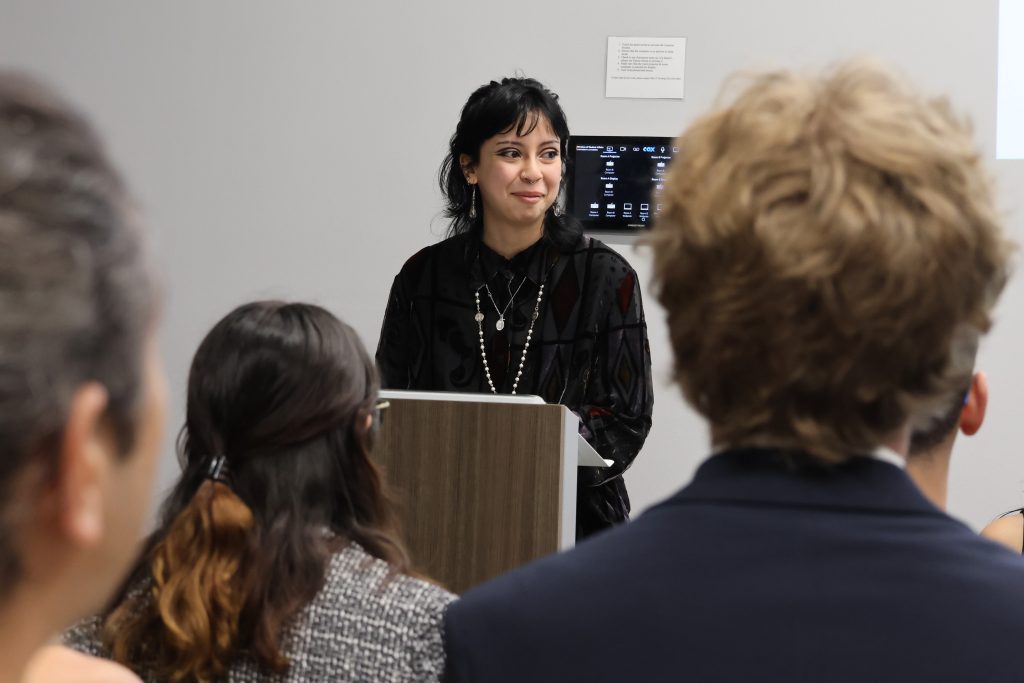
Wednesday, April 3, 2024
By: Kyle Niblett
The University of Florida University Scholars Program (USP) held its annual Sustainability Symposium this past Tuesday at the Reitz Union on campus, featuring award-winning presentations from students presenting their research on sustainability’s impact on society and the environment. The event, which focused on crafting sustainable alternatives, was hosted by the College of Design, Construction and Planning (DCP).
“It is important to find these ways to bring together undergraduate research from across the university so they can share their work together around a central theme of sustainability,” said DCP Associate Dean Nancy Clark, who opened the event with a brief introduction. “We felt this event would help the students see the synergetic relationships and cross-fertilize their research better.”
Presenting in session one on behalf of DCP was architecture student Jackson Budd. The current BIM Intern at Monarch Design Group in Gainesville presented research on lowering building emission using traditional Florida architecture. School of Architecture Assistant Professor Peter Sprowls served as his mentor.
“Representing DCP in the USP Sustainability Symposium certainly is something I am incredibly proud of,” Budd explained. “It is a great feeling to be able to give back to the college that fundamentally changed my way of thinking.”

Budd spent his session explaining how student housing in Gainesville should integrate natural ventilation and sun shading devices. He did this by constructing an argument for change within the status quo of designers and developers, but also with the current behavior patterns of students within their homes. The fourth-year student also conducted an energy analysis between a newly built student housing project and a proposed renovation to the structure with the aim of lowering the carbon footprint.
“The most impressive thing to me was how resilient and intuitive the first settlers of Florida were,” Budd told attendees. “Without any real means of scientific understanding, they were able to make simple ingenious housing that could keep them comfortable in the formidable Florida summers.”
Highlighting the second session was fellow architecture student Emily Garnica. The Architrave co-editor presented her housing relocation research related to future sea level rise in Florida. School of Architecture Assistant Professor Sarah Gamble served as her mentor.

“Tonight was an amazing opportunity to communicate my research to a wider audience,” Garnica said. “I am so glad my sustainability research could be shared with this research community.”
Garnica’s research focused specifically on Pinellas County and how she determined the St. Petersburg, Florida, metro area is at major risk of flooding. By navigating unclear and often roundabout information about the subject, she argued coastal property owners are left questioning how they can save their properties before it is too late. The third-year student finished by talking about how county residents are also at risk because of the lack of financial mobility.
The event offered undergraduates a special opportunity to become engaged in their fields in ways that go beyond traditional classroom settings. Scholarly work mentored by research faculty such as Sprowls and Gamble continues to serve DCP and UF as a form of active learning which fosters critical and independent thinking, creativity, and understanding of the research process.
Giovanna Avellar, who serves as DCP’s liaison to the UF Center for Undergraduate Research, was thrilled by the turnout of the event.
“This symposium showed that anyone who is willing to work hard can succeed in research and be as accomplished as our University Scholars,” Avellar finished with. “It is easy to be in a small bubble when doing research since you tend to mostly interact with people with similar majors from your own college, but this event emphasized the idea of interdisciplinary connectivity and how we need each other for advancement in research.”
For more information, visit https://cur.aa.ufl.edu/.
